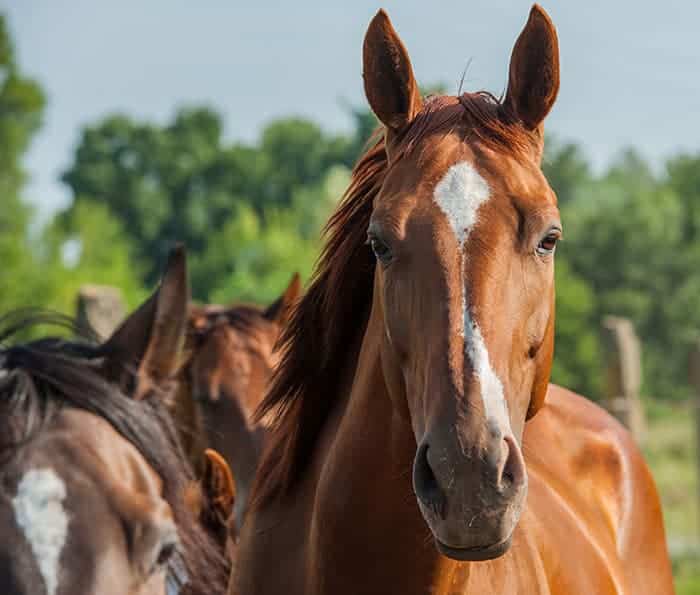How Sensitive Is Your Horse’s Face? New Tools Can Tell You

Researchers measured horses’ facial sensitivity to touch, pressure, and heat to find out what they’re feeling. They used handheld devices—including a pressure reader designed for horse faces—to check each horse’s sensitivity and facial nerve functions.
“Knowing the normal sensitivity values of the face would provide a tool for veterinarians to diagnose alterations in sensitivity,” said Kata O. Veres-Nyéki, DrMedVet, Dipl. ECVAA, PhD, MRCVS, of The Royal Veterinary College, in Hatfield, the U.K., formerly of the Vetsuisse Faculty at the University of Bern, in Switzerland.
“Acute injuries of the face are probably obvious, but chronic pain conditions might be overlooked otherwise,” Veres-Nyéki said. “Using the quantitative sensory testing methods, we can not only detect alterations but also follow up the efficacy of analgesic (pain relief) treatments in a noninvasive (harmless) way
Create a free account with TheHorse.com to view this content.
TheHorse.com is home to thousands of free articles about horse health care. In order to access some of our exclusive free content, you must be signed into TheHorse.com.
Start your free account today!
Already have an account?
and continue reading.

Written by:
Christa Lesté-Lasserre, MA
Related Articles
Stay on top of the most recent Horse Health news with















